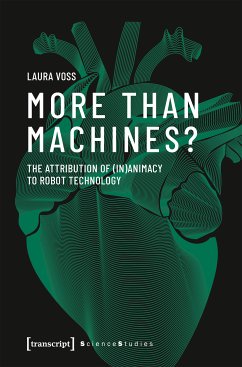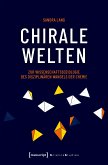We know that robots are just machines. Why then do we often talk about them as if they were alive? Laura Voss explores this fascinating phenomenon, providing a rich insight into practices of animacy (and inanimacy) attribution to robot technology: from science-fiction to robotics R&D, from science communication to media discourse, and from the theoretical perspectives of STS to the cognitive sciences. Taking an interdisciplinary perspective, and backed by a wealth of empirical material, Voss shows how scientists, engineers, journalists - and everyone else - can face the challenge of robot technology appearing »a little bit alive« with a reflexive and yet pragmatic stance.
Dieser Download kann aus rechtlichen Gründen nur mit Rechnungsadresse in A, D ausgeliefert werden.









